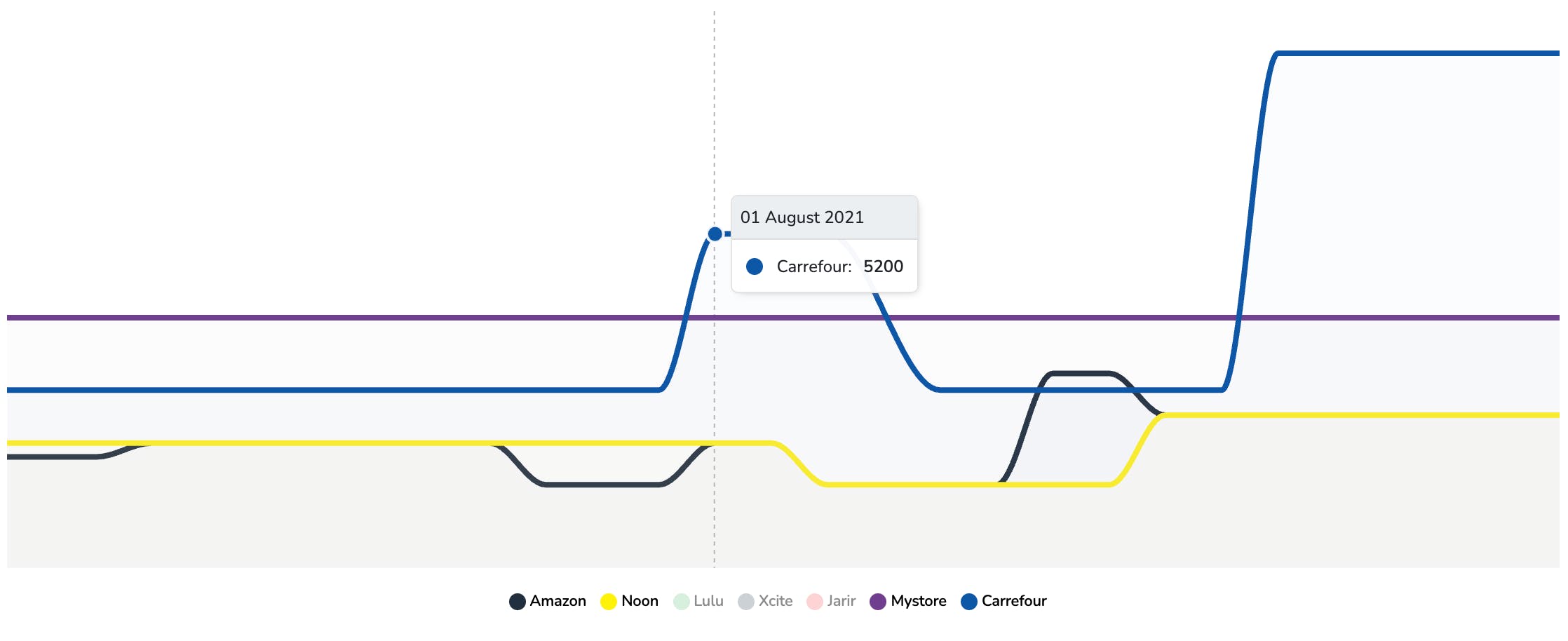
When Is The Right Time To Buy Online?
It is no surprise that you would have a better chance at saving money if you were to purchase during any of the major sale events of the year - Mega sale, White Friday, Back to School, Ramadan sale, etc. However, it doesn't always work out that way; if my TV isn't working, I want another tomorrow. I can wait a couple of days but certainly not going to wait for months.
Most people would be unaware of the fact that the worst possible time to buy in any given month is the first week. This is when sales and promotions typically end, most often at midnight on the last day of the month. Most retailers set up promotions with an end date, and although this may vary from retailer to retailer, however, on average promotions expire at the end of the month and are renewed sometime in the first or second week.
Consider this example of iPhone 12 Pro Max.

Price increases for two retailers on 1st August and dropped again after a few days.
This is especially important to note since most of us wait for salaries to land in our account before going on a spending spree, and the time coincides perfectly when prices are at their highest. So, to put things into perspective, if you were to buy that phone on 1st August, you would be paying SR561 more than you usually would. That is quite a bit of money you could save having waited only a couple of days.
Now granted that there are other stores customers can shop at where price volatility is not as profound as mentioned in our example. However, we're intentionally looking at one store in isolation because people buy where they've bought from before, and not everyone is going to become a researcher overnight and start comparing prices across ten different stores. This is where PriceWho comes in; you get all the information you need in a matter of seconds.
Next time you decide to make a purchase in haste, look up the price data first. You might end up saving a lot of money.
